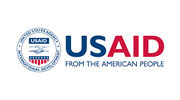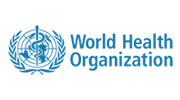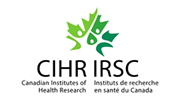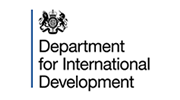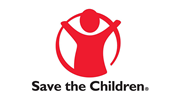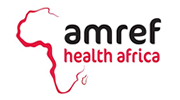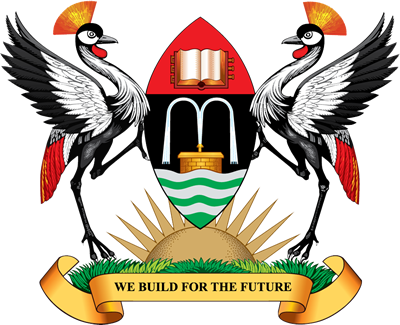Institutional care for vulnerable children may be inevitable in certain circumstances and can result in some positive benefits. However, institutional care is increasingly being scrutinized in many countries, and recommended as a last resort. Children growing in institutional care are prone to negative consequences for their development, including poor health, greater probability of antisocial behavior, and reduced intellectual, social and behavioral abilities. The family provides a better environment for children to grow well as it provides a natural, safe and nurturing environment that promotes normal growth and development as well as better health and wellbeing. The government of Uganda recommends de-institutionalization of child care through reintegration of children as well as systems and family strengthening interventions to reduce the risk of children losing family care.
A consortium of four organizations: SOS Children’s Villages, ANPPCAN, Alternative Care Initiatives and Makerere University Child Health and Development Centre have designed a three year (June 2016-December 2018) formative evaluation of an intervention ‘The Alternative Care Consortium on Systems Strengthening’ (ACCoSS). The project aims at addressing the causal factors that have perpetuated institutionalization of children. The main objective is to promote appropriate family based care for children through an integrated systems strengthening approach in Buikwe, Mukono, Wakiso and Kayunga districts.
This is a mixed methods longitudinal study employing both quantitative and qualitative approaches. Baseline quantitative data will be collected from a total of 300 child-parent dyads among children to be reintegrated and a series of repeat qualitative interviews will be conducted at three intervals during the course of the project to collect data regarding acceptability and experiences and impact of the ACCoSS project on children, families, and systems at national, district and community levels.
RESEARCH PROPOSAL SUMMARY
RESEARCH QUESTIONS TO BE ADDRESSED BY THIS PROPOSAL
This formative research addresses the following major questions:
1. How the ACCoSS project is received (acceptability) and perceived in terms of relevance by the target groups? What is people’s reaction to the project?
2. What is the most appropriate mode of implementing the ACCoSS interventions? How comparable are the different approaches of the implementing partners?
3. What is the process and experience of conducting child assessment for readiness? What is the most appropriate way and process to identify and trace the families to reintegrate children? How participatory should the process of reintegration of children be – mobilization, involvement of the relevant institutions?
4. What is the most productive way to conduct community dialogues and engagement with local existing structures
5. What is the process and experience of reintegrating children to their families or alternative caregivers, and how is it perceived by the children, the families, and institutions targeted? How do relations and interactions between the different actors develop and/ or be affected by this process? What adjustments are necessary for them in order for this process to be effective? What gender patterns are emerging in relation to reintegration?
6. How do the various ACCoSS interventions that children and households receive (such as provision of temporal family support, referral for health care, supporting children to receive legal services, education support for reintegrated children) affect the households and children in terms of livelihood and vulnerability, family relationships, parenting skills, and child well-being?
7. How effective is mobilization of vulnerable families in strengthening their networks, capacities and resilience to take advantage of existing opportunities for VSLA?
RATIONALE
Background and reason for conducting the study
Institutional care for vulnerable children may be inevitable in certain circumstances and can result in some positive benefits. However, institutional care is increasingly being scrutinized in many countries, and recommended as a last resort. Children growing in institutional care are prone to negative consequences for their development, including poor health, greater probability of antisocial behavior, and reduced intellectual, social and behavioral abilities. The family provides a better environment for children to grow well as it provides a natural, safe and nurturing environment that promotes normal growth and development as well as better health and wellbeing. The government of Uganda recommends de-institutionalization of child care through reintegration of children as well as systems and family strengthening interventions to reduce the risk of children losing family care.
A consortium of four organisations: SOS Children’s Villages, ANPPCAN, Alternative Care Initiatives and Makerere University Child Health and Development Centre have designed a three year (June 2016-December 2018) formative evaluation of an intervention ‘The Alternative Care Consortium on Systems Strengthening’ (ACCoSS). The project, funded by Terre des Hommes (TdH) aims at addressing the causal factors that have perpetuated institutionalization of children. The main objective is to promote appropriate family based care for children through an integrated systems strengthening approach in Buikwe, Mukono, Wakiso and Kayunga districts.
Objectives of the study
The ACCoSS project aims to generate an evidence base on alternative care systems strengthening and reintegration interventions undertaken during the project. The objective of the formative research is to
study the process of implementation of the ACCoSS project, examine the lessons learned, and evaluate the impact of the intervention.
We plan to collect empirical evidence before, during and after the design and delivery of the ACCoSS project, to clarify the appropriateness of the ACCoSS intervention in the lives of the children being reintegrated and their families, its design and implementation process and the impact of project.
Methods
This is a mixed methods longitudinal study employing both quantitative and qualitative approaches. Baseline quantitative data will be collected from a total of 300 child-parent dyads among children to be reintegrated and a series of repeat qualitative interviews will be conducted at three intervals during the course of the project to collect data regarding acceptability and experiences and impact of the ACCoSS project on children, families, and systems at national, district and community levels.
Stage 1: Baseline
Baseline data will be collected from all (census) the 150 children target for reintegration and their families (150) to obtain basic quantitative information about their demographic and socioeconomic status. Secondary documentary review shall be undertaken to provide wider contextual insights on the determinants of child vulnerability to losing parental care and separation from their families
Stage 2 Longitudinal qualitative studies
These will be with (a) children being reintegrated, (b) their families. At least 3 repeat interviews with all children targeted for reintegration and their families will be conducted before (collected alongside quantitative data), during and after project implementation. In particular qualitative data will be collected from the children and families, three times during the course of the project as follows:
Phase 1: This will be conducted approximately in November-December 2016. interviews with the child/family, community structures and CCI during and or shortly after being selected for the ACCoSS project.
Phase 2 : It will be conducted approximately in May-June 2017. This repeat interview will take place six months after the child/family has been enrolled into the ACCoSS interventions/ being resettled.
Phase 3 : Will be approximately May-June 2018. This final interviews at the end of the project, as part of final evaluation to assess how reintegrating has worked, assess the successes (and failures), outcomes of the intervention, based on the embedded theory of change.
Study sites and sample selection
Data will be collected from four ACCoSS project districts namely: Wakiso, Mukono, Buikwe and Kayunga.
Procedures:
On the day and time of the interview, participants will be given two copies of the attached Informed Consent Form, one for them to keep and one (signed) for the research team to keep for records. The Consent Form (attached) states the objectives of the study and includes information concerning confidentiality, maintaining security of all documents, and being respectful towards the participant’s experiences and emotions throughout the interview. Participants will be asked to read the form thoroughly or it will be read to them if they are not able to read, and sign it only if they are willing to participate. If they sign, the researcher will once again verbally summarize the consent policies and will remind them that they are not required to answer every question, they can take a break if needed, and that they have the power to terminate the interview at any time, without penalty and without affecting our relationship. Since the children and families involved are already vulnerable in many different ways, a critical issue will be to ensure that the research does not further harm them. We will be sensitive to this in terms of the questions being asked, and if a child shows signs of distress the interview will be discontinued/halted, and he/she will be linked up with the social workers in the project or if they prefer they can be referred to their usual service provider if any, and facilitated with transport if necessary.
Benefits: There is no direct benefit received from your participation in this research, but your views and ideas will enable the PI gain a clear understanding of issues surrounding reintegration and alternative care so that alternative care programming and implementation may be improved. The PI will use your views/ responses, along with information from others to determine how well ACCoSS project interventions can be implemented, improved and monitored to meet the desired objective, for the benefit of all children in similar circumstances, in Uganda. The indirect benefits may include an opportunity for you to increase your knowledge about issues surrounding reintegration, alternative care, as well as having your questions answered.
Risks
The consortium members are aware of the potential risk of children’s interests being abused during the implementation of the ACCoSS project, if due diligence is not taken at all stages of the project. Within the framework of their own institutional child protection policies, each member of the consortium therefore commits to priorities the best interest of the children and their families by following standard operating protocols.
We do not anticipate serious risks to children resulting from our interviews. Potential risks may include psychological distress arising from answering certain questions and reflecting on their plight or recalling some previous negative life experiences. CHDC will ensure that the research is reviewed by relevant IRB, and that assent is obtained from children and consent from their family/caregivers at different stages of the study process. We will adopt child centered approaches to data collection in which children’s perspectives will be generated with extreme care and will as much possible try to minimize causing further distress to the children being.
COMPENSATION
The children or families will not be provided any financial incentives since they will be interviewed either in the child care institution or at home. It is assumed that the parents/care givers and children involvement in the study will have benefited/ expected to benefit from the wider support provided by our partners implementing the ACCoSS project, and therefore will need not other incentive from the research component of the project.
Reimbursement:
While the research will not provide reimbursement, it is understandable the in the event that a respondent incurs costs such as transport in order to participate in the research, in another alternative venue other than his/her place of residence, then the PI will reimburse the respondent with what he/she has spent on transport, which should not exceed UGX 10,000 (USD 3).
